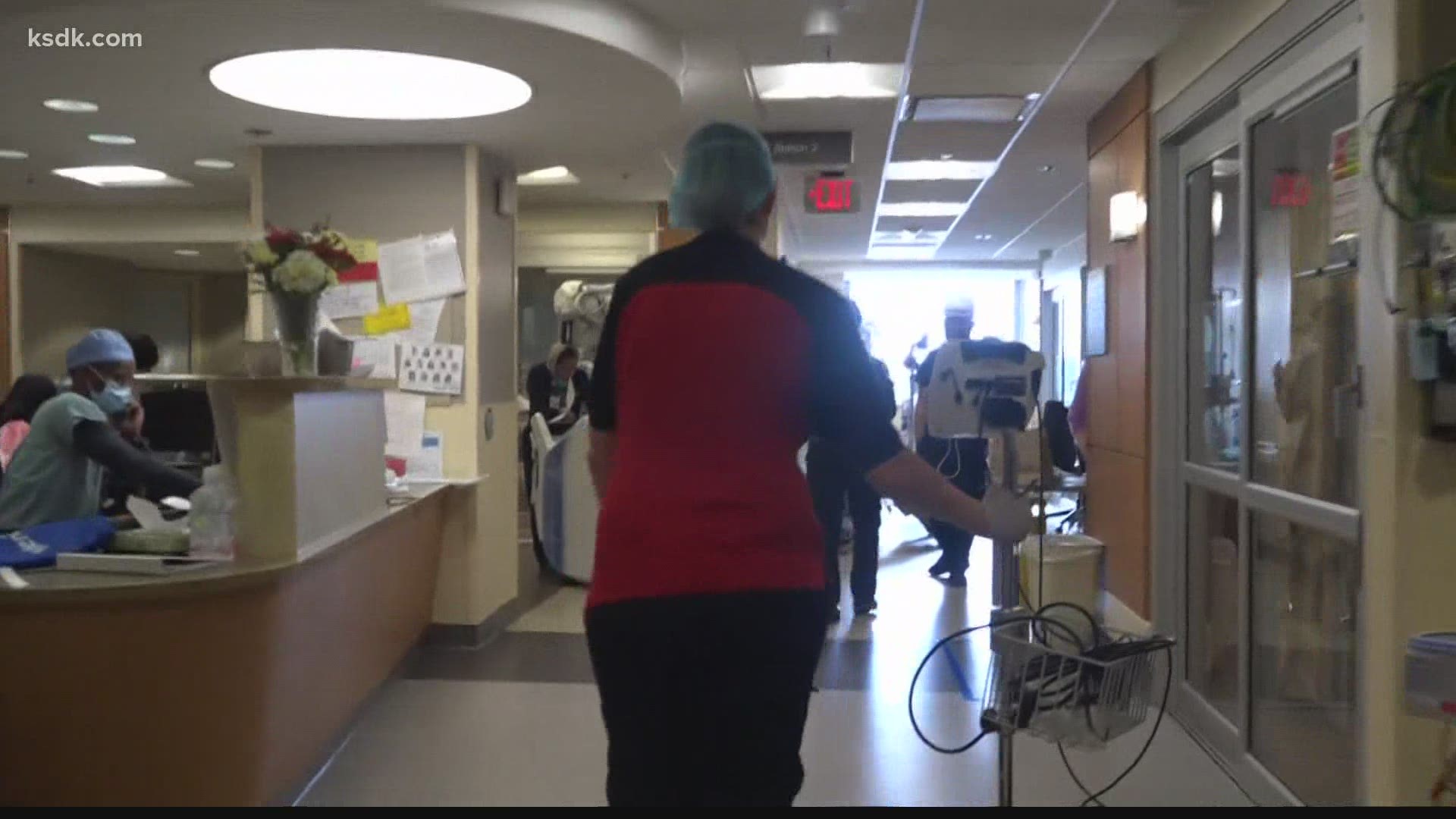ST. LOUIS — Scientists are getting a better grasp on COVID-19 variants and how the strains are affecting communities around the world. What they're finding is that the new viral strains are easier to transmit and are putting more young people in the hospital.
"A COVID variant is basically the COVID-19 virus that has changed itself, because it has been out making more of itself over and over," explained Washington University infectious disease specialist Dr. Jason Newland.
Reproducing and mutating is what viruses do. Dr. Newland said there is a 50/50 chance that if you get COVID-19, you contracted a variant.
"At this time, as a patient, we're not going to know if we have a variant or not," Dr. Newland told 5 On Your Side, adding that sequencing for COVID-19 strains is typically done at the state and national level.
Doctors and researchers, like Newland, are worried about the trends they are seeing with COVID-19 variants.
"They can transmit it better, it appears. Doesn't matter if you're an older person, middle aged person, a young person or a child, they're likely to transmit it better," Newland said.
He added that B.1.1.7 — the variant first detected in the U.K. — is most prevalent in the U.S., but that other variants are most likely here as well. He's been monitoring surges in Michigan and New York City and said it's probable that variants are to blame for the uptick in COVID-19 cases.
There is a path out of this pandemic, one Dr. Newland said we should run, not walk to
"It's a race. It's kind of a race for us all to get vaccinated, so that we don't see some version of a surge," he said.
Variants may mean more COVID-19 vaccines down the road. So far, the vaccines available now tackle the current strains, but Dr. Newland said if a new variant is resistant, doses can be quickly adjusted.
Drug companies are used to altering vaccines to meet the most pressing viral strains. Influenza mutates too, which is why the flu vaccine changes every year.

